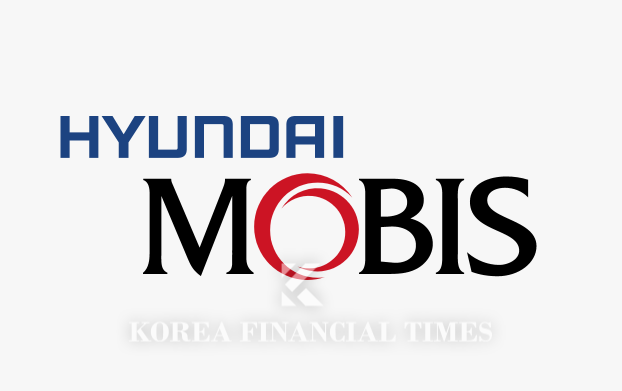 이미지 확대보기
이미지 확대보기Hyundai Mobis held a 'CEO Investor Day' at the Fairmont Hotel in Yeouido, Seoul at 3 PM on the 19th. Key executives including President and CEO Lee Kyu-seok, Vice President of Sales Division Axel Mashuka, and Executive Director of Finance Park Ki-tae attended the event.
Out of the 62 minutes of presentation time, they spent 59 minutes introducing mid- to long-term business strategies, ESG management plans, and financial goals to increase corporate value.
The remaining 3 minutes were spent on shareholder return policies that the market was paying attention to.
Hyundai Mobis' stock price was stuck in a box for a long time. The company's stock price closed at 250,500 won on that day, which is similar to the closing price recorded in October 2010, 14 years ago.
 이미지 확대보기
이미지 확대보기On this day, Executive Director Park Ki-tae emphasized, "We have established an upgraded shareholder return policy." The key is to expand the total shareholder return rate (TSR) from 19.7% for the past three years (2022-2024) to over 30% for the next three years (2025-2027). However, the TSR that Hyundai Mobis is talking about is different from the generally accepted TSR. The TSR created by Boston Consulting Group is the sum of dividends and stock price increases. Hyundai Mobis used a calculation formula that compares dividends and the size of treasury stock burn to net income for the period. It is positive that they have shown their intention to expand treasury stock burn, but the responsibility and promise for supporting the stock price are judged to be ambiguous.
The specific size of treasury stock burn is 'existing treasury stock' for three years from next year to 2027. Hyundai Mobis owns 2,652,000 treasury stocks, worth about 660 billion won. They plan to burn about 220 billion won every year. The company has already purchased and burned 150 billion won worth of its own shares last year and this year, so the burn volume will definitely be expanded.
 이미지 확대보기
이미지 확대보기It is unfortunate that Hyundai Mobis' new shareholder return policy will only burn existing shares, rather than buy back additional shares. It is unfortunate that Hyundai Mobis' new shareholder return policy does not involve additional share purchases and burns, but only burns its own treasury stocks. The market's assessment of this situation seems to be similar. Despite the announcement of the new shareholder return policy, the company's stock price closed down about 3.1% on the day.
The reason for the sluggish performance of Hyundai Mobis' stock price so far is pointed out to be the passive burn of treasury stocks. Hyundai Mobis, which was attacked by activist fund Elliott in 2018 and had its governance restructuring plan frustrated, purchased a total of KRW 988.9 billion worth of treasury stocks and burned KRW 657.5 billion through the first shareholder return policy (2019-2022) announced the following year. In the second (2022-2024), KRW 610 billion was purchased and KRW 349 billion was burned. However, a significant portion of the burn amount was made up of treasury stocks already held.
As a result, it was ineffective. Hyundai Mobis stock price soared to nearly 360,000 won at one point in early 2021, riding on expectations for Hyundai Motor Company and Kia Motors’ performance, but it soon moved sideways in the 200,000-250,000 won range.
President Lee Kyu-seok said, “It is time to achieve qualitative growth based on profitability,” and “We will balance performance and shared growth, investment and shareholder returns to bring corporate value up to global status.”
Gwak Horyung (horr@fntimes.com)
[관련기사]
가장 핫한 경제 소식! 한국금융신문의 ‘추천뉴스’를 받아보세요~
데일리 금융경제뉴스 Copyright ⓒ 한국금융신문 & FNTIMES.com
저작권법에 의거 상업적 목적의 무단 전재, 복사, 배포 금지











![이재용 회장 ‘삼성의 미래ʼ PICK “올해 일 낸다” [K-휴머노이드 대전] ② 휴머노이드 원조 레인보우로보틱스](https://cfnimage.commutil.kr/phpwas/restmb_setimgmake.php?pp=006&w=284&h=214&m=5&simg=2026022214532407407dd55077bc221924192196.jpg&nmt=18)






![[속보] KAI 노조 "오늘 사장추천위 열린다"...사측 "확인 못해"](https://cfnimage.commutil.kr/phpwas/restmb_setimgmake.php?pp=006&w=110&h=79&m=5&simg=20260227135534054450d260cda7511817679169.jpg&nmt=18)
![이재용 회장 ‘삼성의 미래ʼ PICK “올해 일 낸다” [K-휴머노이드 대전] ② 휴머노이드 원조 레인보우로보틱스](https://cfnimage.commutil.kr/phpwas/restmb_setimgmake.php?pp=006&w=110&h=79&m=5&simg=2026022214532407407dd55077bc221924192196.jpg&nmt=18)


